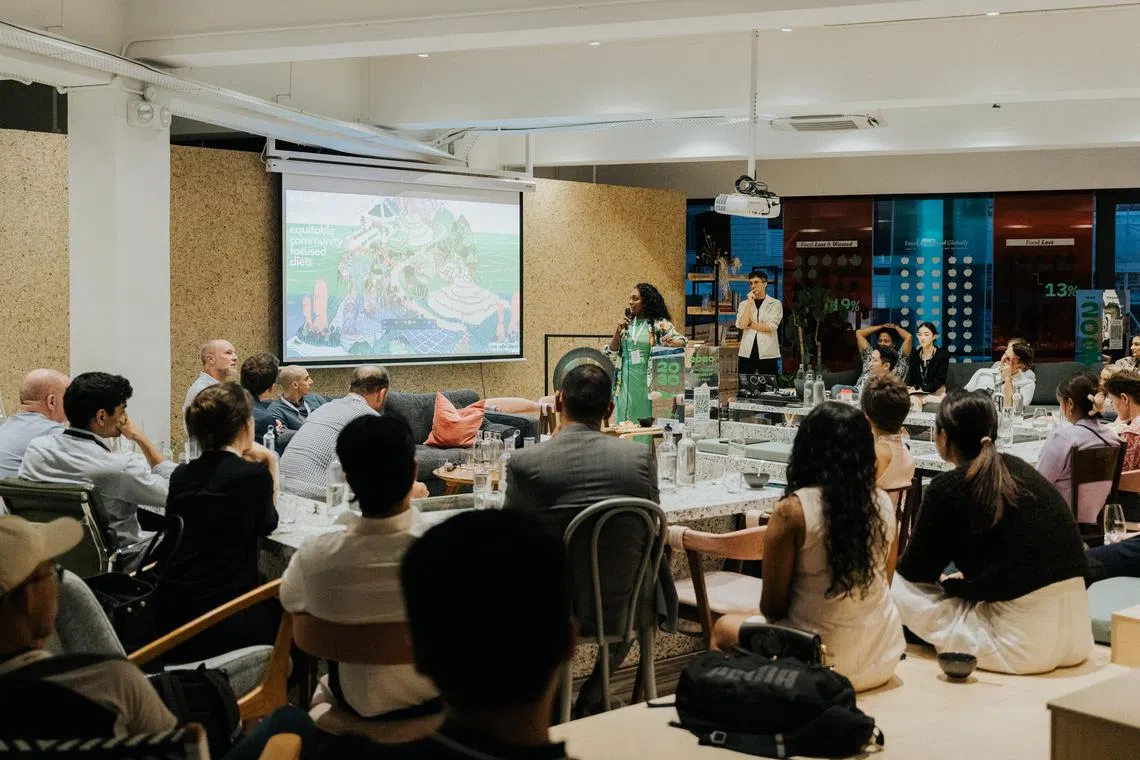The Future of Food: Can we feed 8.8 billion people sustainably?
An ongoing series of events explores what we are likely to be eating a decade from now

BY 2034, the global population is projected to rise nearly 10 per cent to 8.8 billion, placing greater pressure on meat and dairy production. This growing demand is expected to strain natural resources – water, land and energy – which are already under stress from existing agricultural practices.
Against this backdrop, The Future of Food – a series of events exploring what we are likely to be eating 10 years from today, has returned for its fourth edition. This time, it is expanding its scope to engage a wider audience.
Organised by Synthesis, a data consultancy specialising in industry trend forecasting, the initiative was launched on Jan 20 with a series of workshops, seminars and a symposium exploring food production challenges.
Open to the public
Unlike previous editions with their industry-focused dinners, the event is now open to the public, signalling a broader effort to raise awareness and inspire change.
This year, The Future of Food has partnered the Kita Food Festival, an annual celebration of South-east Asian cuisine, to highlight regional food systems and sustainable practices.
Synthesis founder Lee Fordham said the initiative aims to showcase businesses shaping the future of food, whether through innovation or rediscovery of traditional methods.
Navigate Asia in
a new global order
Get the insights delivered to your inbox.
“There’s a lot of ancient wisdom and approaches that we can learn from nature,” Fordham said. Sometimes the solution to existing problems “is sitting right in front of our eyes”, he added, emphasising the importance of appreciating local ingredients alongside technological innovations.

The first session, held on Jan 20, explored sustainable food sourcing. Attendees sampled unconventional but promising ingredients, such as cricket-infused hazelnut madeleines from Altimate Nutrition, a local insect-based food company, and crudites featuring locally grown produce.
The event also featured a panel discussion with Didier Chanove, innovations lead at food company Kerry Group; Enzo Acerbi, chief technical officer of sustainable seafood company Vertical Oceans; and culinary anthropologist Nithiya Laila, who examined how traditional and modern food-sourcing techniques can work together to address future needs.
The second seminar on Feb 10 tackled food waste reduction. Participants sampled dishes crafted from overlooked ingredients, such as pig head nuggets by restaurant Dirty Supper, which specialises in whole animal cooking; they also tried strawberry-infused rum made from discarded banana peels, created by bar industry veteran Vijay Mudaliar of Native and Analogue Initiative.
Changing consumer mindsets
A panel addressing the challenges of changing consumer mindsets and scaling sustainable food practices featured Kong Qi Herng, co-founder of food tech startup The Moonbeam Co; Peter Smit, chef-owner of Dirty Supper; and Jake Berber, chief executive of bean-free coffee company Prefer, which makes coffee from bread, spent barley and soya bean pulp.
One of the major hurdles in food sustainability remains consumer perception. Despite Singapore legalising 16 insect species for consumption in 2023, insect-based foods still face resistance.

“People have to be more open to trying,” said Altimate Nutrition’s chief operating officer Hiew Yuen Sheng, emphasising the role of education and exposure in normalising alternative proteins. Insects such as crickets, he notes, require significantly less land and water than traditional protein sources, offering a viable solution to global food challenges.
The Future of Food continues on Feb 24 with a seminar titled Sustain, focusing on nutrition. It features speakers such as Nova Dewi, chief executive of Suwe Ora Jamu, which champions the Indonesian jamu (or herbal medicinal drink); and Stefan Klade, chief operating officer of multidisciplinary research platform TumCreate.
The series concludes on Mar 17 with a full-day symposium featuring Joxe Mari Aizega, general director of the Basque Culinary Center; Eelke Plasmeijer, co-founder of hyperlocal Balinese restaurant Locavore Nxt; and Helianti Hilman, founder of sustainable food company Javara. They will discuss pressing issues surrounding food security and sustainability.
While obstacles remain in shaping consumer preferences in order to scale these innovations, initiatives such as The Future of Food signal a growing shift towards more sustainable eating habits. Whether this momentum leads to lasting industry transformation will depend on continued collaboration between businesses, policymakers and consumers.
Tickets for individual seminars are priced at S$118, which includes food and beverages. For more information, visit futureoffood.kita.synthesis.partners
Decoding Asia newsletter: your guide to navigating Asia in a new global order. Sign up here to get Decoding Asia newsletter. Delivered to your inbox. Free.
Copyright SPH Media. All rights reserved.



